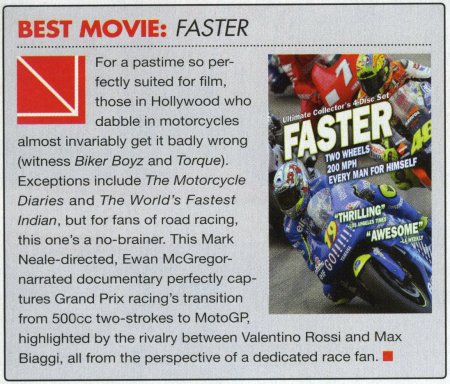The sport of motorcycle racing has a rich history that winds its way through 20th century United Kingdom like the narrow roads on the Isle of Man. Recently, this history has included a new avenue of opportunity: electric motorcycle racing. But controversy, no stranger to motorsports, has already touched this new sport, and recent events indicate that a shockwave of change may be in store for the sanctioning bodies that currently organize the upcoming racing series.
According to an email recently published on, of all places, the personal blog of Ivar Kvadsheim, a Norwegian journalist who writes primarily on the subject of electric motorcycle racing, a UK government agency is likely to bring charges of anti-competitive behavior and monopoly practices against the Fédération Internationale de Motocyclisme (International Motorcycling Federation, or the FIM). The FIM is “the world governing body for motorcycle sport and is an independent association formed by 101 National Federations throughout the world. It is recognised as the sole competent authority in motorcycle sport by the International Olympic Committee (IOC). Among its 49 FIM World Championships the main events are MotoGP, Superbike, Endurance, Motocross, Supercross, Trial, Enduro and Speedway.” Source: www.fim-live.com. To understand the context of the email about the anti-competitive behavior, a review of the story behind the relationship between FIM and TTXGP is necessary.
TTXGP, an organization unrelated to the FIM, was founded in 2008 by Azhar Hussain, an entrepreneur in the electronics industry. It ran the world’s first zero carbon, clean emission motorcycle race on the Isle of Man TT in June 2009 which was the first sanctioned zero-carbon race in history. It pioneered many of the safety and technical standards used in electric motorsports today. Following the successful race on the Isle of Man, TTXGP worked closely with the FIM, sharing technical expertise and unique experience. TTXGP was invited to sit on the FIM zero carbon committee to help form the rules for 2010. Essentially, the TTXGP was courted by the FIM in hopes of building a partnership that would become the sole governing body for electric motorcycle racing.
That all ended in November 2009, when the FIM announced that it was going to run its own international e-motorcycle racing series called the ePower. Notably absent from the press release was any mention of TTXGP or Hussain. Rumors and conjecture about the reasons behind the split followed, but regardless of all of that, it was clearly not an amicable parting of the ways. Since then, the news has come fast and furious – TTXGP announced its world series of races including four North American, four UK, four Italian, and a final race in Spain. FIM initially announced four races in the e-Power series (two in France, one in Spain, and one in Qatar). Later, it dropped the Qatar race, substituting a race in Imola, Italy, and it added a race for July 24, 2010,at Laguna Seca Raceway in Monterey, California, USA. Meanwhile, the Isle of Man government split from TTXGP and decided to have its own electric motorcycle race, without TTXGP, which it would call TT Zero. The TT Zero announced that it would follow the technical rules for electric motorcycles that had been published by FIM.
The FIM ePower rules, however, are almost identical to the technical rules created by TTXGP for this nascent sport. TTXGP shared these rules with FIM when the two organizations were moving forward, building a partnership which would not come to fruition. No legal action has been filed by TTXGP for the infringement, but a side-by-side reading of the nearly identical rules would certainly support such an action.
With this background, a closer examination of the email mentioned in the opening paragraph is called for. The email, dated March 23, 2010, is addressed to Azhar Hussain and the author is Simon Carter, Business Relationship Manager, Automotive Unit, Department for Business Innovation & Skills. The email states in relevant part:
I can confirm that it is our view that the FIM based in Switzerland have a case to answer in anti competitive behaviour and in monoply [sic] practices. I am in contact with the Office of Fair Trading who are looking into bringing charges against the FIM in Europe.
The Department for Business, Innovation and Skills (BIS) is a Ministerial Department of the government of the UK. The key role of the BIS is “to build Britain’s capabilities to compete in the global economy.” The Department has many duties, but relevant to this matter, the following duties arguably apply:
- Advocate the needs of business across government, especially of UK small businesses;
- Promote an enterprise environment that is good for business and good for consumers;
- Design tailored policies for sectors of the UK economy that represent key future strengths and where government policy can add to the dynamics of the market;
- Encourage innovation in the UK;
- Defend a sound regulatory environment that encourages enterprise and skills;
- Collaborate with the RDAs in building economic growth in the English regions;
- Work with the EU in shaping European regulation and European policies that affect the openness of the single market and the competitiveness of European and British companies.
The Office of Fair Trading (OFT) is a non-ministerial government department that enforces European Community and UK competition laws including Articles 81 and 82 of the EC Treaty and the Competition Act 1998. The Competition Act 1998 focuses on competition policy within the UK, but, given that the email mentions that FIM is “based in Switzerland” it is more likely that the OFT will turn to Articles 81 and 82 of the EC Treaty which deal with free competition and monopolies, respectively, within the wider European Community.
If OFT brings charges against FIM under Article 81 and/or Article 82, the effects could be substantial on the self-proclaimed “sole competent authority in motorcycle sport” and on the sponsors and teams that do business with it. Article 81 provides that a violation of the Article not only raises the specter of fines levied against the violator, “[a]ny agreements or decisions prohibited pursuant to this article shall be automatically void.” In other words, if the OFT brings charges against the FIM, entities signing contracts with the FIM run the risk of those contracts being declared void. Based on my admittedly sparse knowledge of OFT procedures, it looks to me that if the OFT decided that FIM was engaging in anti-competitive practices, it would then refer the case to the Competition Commission of the European Commission. (Based on this recent referral of a case involving Procter and Gamble by the OFT to the EC).
Why would the UK want to get involved in the motorsports industry at all? The answer to that question can be found in a recently released report (Note: link opens a .pdf document) by the House of Commons Business, Innovation and Skills Committee (BISC is a committee of the UK legislative body, rather than an executive department, which the BIS is). “Full speed ahead: maintaining UK excellence in motorsport and aerospace.” 22 March, 2010. That report stated:
The motorsport and aerospace industries represent two jewels in the crown of UK manufacturing. The United Kingdom is a world leader in the motorsport industry, and boasts the world’s second largest aerospace sector after the USA.
(Report, p. 5).
Additionally, and relevant to the dispute between FIM and TTXGP, the report provides:
In addition to financial support for “green” research, the Government is considering the potential for using motorsport to challenge people’s perception of environmental issues. We welcome the fact the Government is considering this as an area of action and agree that motorsport has the potential to shift the debate about carbon emissions away from a dry conversation about carbon budgets, towards a more valuable debate on the role that technology and innovation can play in addressing climate change and other environmental issues.
(Report, p. 3).
Given the UK Government’s interest in preserving its image of leadership in the motorsports industry and its interest in green technology, what other current conflict could contain such ripe, low hanging fruit? The appearance of the dominant FIM using its influence and power to crush the TTXGP (not to mention the appropriation of its Technical Rules) would seem to be a ready vehicle on which to put the UK Government’s dual interests to the test.
But would a conflict involving motorsports ever be worthy of the attention of the European Commission?
It certainly would. In fact, precedent for the EC’s involvement in this case exists in competition proceedings it commenced in 1999 against the Fédération Internationale de l’Automobile (FIA), the body in charge of international motor racing. (The EC later expanded the proceedings to include the Formula One Administration and International Sportsworld Communications). The EC’s proceedings, initially prompted by complaints by broadcasters over the way the FIA organized the sport, identified several areas in which the FIA appeared to be abusing its dominant position in the industry. Relevant to the current dispute, the EC found that the FIA used its power to block series which competed with its own events. As the “sole regulatory body” of international motor racing, any track owner, vehicle manufacturer, organizer of events, and drivers had to come to it to obtain an FIA license. License holders were tied to FIA and were only permitted to enter or organize events authorized by the FIA. Any license holder found to ignore this prohibition could have its license stripped and would thus be prevented from participating in most of the notable motorsports events held in Europe.
This case ended up with the FIA entering into a settlement agreement with the EC in which the FIA agreed to several measures which resulted in FIA’s division of its commercial and regulatory authorities, a freeing up of its stranglehold on its licensees, and arguably, an opening up of the motorsports marketplace in Europe. Admittedly, this is an over-simplification of the FIA matter, but I include it here merely to illustrate that the EC is not unwilling to enforce the laws of fair trade and competition as they apply to the motorsports industry.
What’s next?
Next, we wait to see if the BIS and the OFT follow through with commencing a case against the FIM and whether the OFT will bring the matter before the EC. Sponsors, teams, manufacturers, media partners, riders, and fans should follow this story as it has the potential of being a big game-changer in the growing world of electric motorcycle racing. With three series vying for “world champion” status, it seems a foregone conclusion that each one will have to include an asterisk (*) after the name. The deeper question, however, remains to be answered: what will the record books say beside that asterisk?

 TTXGP CEO, Azhar Hussain, recently gave an interview to the Federation of European Motorcyclists’ Assoaciations (FEMA) and, among other subjects, had some comments to make about the Technical Rules Wiki:
TTXGP CEO, Azhar Hussain, recently gave an interview to the Federation of European Motorcyclists’ Assoaciations (FEMA) and, among other subjects, had some comments to make about the Technical Rules Wiki:




